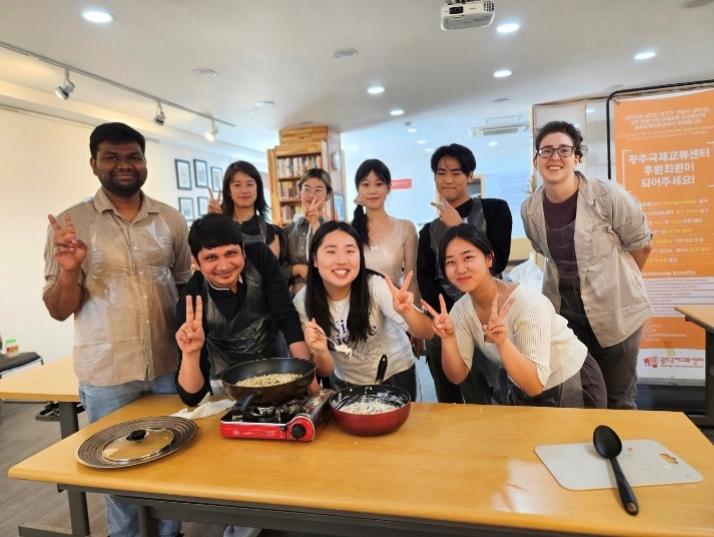Plastic Surgery in Korea
By Seth Pevey and Lee Mi-sun
If you take a look around Korea, you can easily see many kinds of plastic surgery advertised; liposuction, double eyelid modification, face lifts, tummy tucks, and nose jobs are all freely and unabashedly peddled in magazines and on signboards.
It is curious and frightening to imagine what can happen in any of the many plastic surgery clinics across Korea. The trend has been getting worse—more and more teenagers, particularly girls, are fighting a vain battle to appear thinner, sexier, and craft a face more beautiful than nature ever intended, often with horrific results. Many students aspire to replace themselves with the glitzy looks of their favorite K-pop idol. In Seoul, this lust for glamor means big bucks for the most popular plastic surgery doctors.
When people surf the Internet or read magazines, many kinds of ads showcase a “before and after” profile, vividly trying to entice the reader’s curiosity and to pander to those who may already be addicted to shallow “lookism.” A lot of people from other countries seeking to alter themselves also come to Korea, to famous Seoul clinics situated in the Apgujeong-dong and Gang-nam areas. Koreans are renowned for their delicate hand eye coordination, and at the big clinics in Seoul they hire teams of interpreters to help foreigners get exactly the “treatment” they are looking for.
This begs the question, what kind of a person purposely undergoes the knife for the sake of beauty? Are these people bold, courageous and rational? Or rather, does it show an underlying problem in Korean society?
The International Society of Aesthetic Plastic Surgery confirms that South Korea is indeed the country with the world’s highest per capita rate of cosmetic plastic surgery. But why?
Being a country with a lot of deep seeded Confucian ideals, Korea is a place where the thoughts and attitudes of the community towards an individual are extremely important to the success and acceptance of that individual. Thus, being perceived as attractive becomes a means to achieve things within that community, which in turn creates a culture where merit is more and more based solely on looks. Even so, judging people based on their appearance is not unique to Korea, nor is it new to these modern times.
The mass media worsens the cycle, subconsciously telling us the standards of beauty. Therefore, people are willing to take the risk to look beautiful. Society has amplified the importance of looks, and an emphasis on sexual attractiveness and beauty seems to supersede all else. Appearance now plays a key role in finding a job, a marriage partner and so on.
People have the right to do as they see fit with their own bodies. Becoming more attractive can help people grow their confidence and self-esteem. But how sound and stable can your confidence and sense of self-worth really be if based solely on some silicon facial modification? Although one person’s life may be improved by plastic surgery, what example are we setting if we allow this vicious cycle to continue?
It is time for our society to face reality, taking into consideration the risks and harmful side effects of plastic surgery, as well as the long term damage to the psyche of our populace and the profound and wretched consequence of a culture that becomes so shallow as to actually have mothers gifting their daughters plastic surgery as graduation presents. Has this not gone too far?
No matter how much medical technology improves, no surgery is risk free. There are scars left sometimes physical and sometimes deeper.
Instead of surgery, women across this peninsula should learn to appreciate themselves for who they are. Why not give yourself a big smile, look into the mirror, and think to love yourself as you really are, the greatest accomplishment in the world. Keep in mind that if you don’t love yourself as you are inwardly and outwardly, you cannot truly have the courage to love others in your life. Don’t judge a book by its cover!
A version of this article appeared in the March 2012 Gwangju News print edition.
한국의 성형수술 열풍
글: Seth Pevey, 이미선
번역: 정자연
한국에서는 어디를 둘러보건 다양한 종류의 성형광고를 쉽게 찾을 수 있다. 잡지와 광고판에는 지방 흡입술, 쌍꺼풀 수술, 주름제거 수술, 복부지방 수술 그리고 코 성형 수술에 대한 광고가 자유롭고 대담하게 실려 있다.
한국의 수많은 성형외과에서 어떤 일이 일어나고 있는지 생각해 보면 궁금한 한편 무섭기도 하다. 현재 성형수술 추세는 시간이 지나면서 더 악화되고 있다. 많은 십대들 그 중 특히 소녀들은 좀 더 날씬하고 섹시하며 아름다운 얼굴을 가지고자 공들이며 공허한 고군분투를 하고 있고 때때로 끔찍한 결과를 가져오기도 한다. 많은 학생들은 자신이 선망하는 한국 아이돌 스타들의 화려한 모습이 되기를 바라며, 매력적인 외모를 갖기 위한 열망은 한국에서 인기 있는 성형외과의 대부분의 의사들에게 굉장한 수익을 가져다 주고 있다.
인터넷을 검색하거나 잡지를 읽을 때 “수술 전후” 사진을 담은 다양한 종류의 광고들을 흔히 볼 수 있다. 이 수많은 광고는 독자들의 호기심을 생생하게 이끌어내고 이미 외모 지상주의에 빠진 이들을 유혹한다. 그뿐만 아니라 자신의 외모를 바꾸길 원하는 다른 나라의 많은 사람들도 서울의 “압구정동”과 “강남”에 위치한 유명 성형외과를 방문하고 있다. 한국인들은 손과 눈 양쪽을 정교하게 사용하기로 유명한데, 서울의 큰 규모의 성형외과에서는 외국인들 개개인이 원하는 “치료”를 정확하게 해주고자 통역팀을 고용한다.
그렇다면 과연 어떤 사람들이 좀 더 아름다워지고자 자신의 몸에 칼을 대려고 하는지 질문하게 된다. 이들은 대담하고 용기 있는 분별 있는 이들일까 아니면 한국 사회에 내재된 근본적인 문제점을 보여주는 현상일까? 국제미용성형수술협회는 한국인이 성형수술을 받는 비율이 1인당 가장 높은 국가임을 입증해 준다. 그 이유가 무엇일까?
유교 사상이 깊게 자리잡고 있는 한국은 개인을 바라보는 공동체의 생각과 태도가 그 개인의 사회적 성공과 인정에 있어서 중요한 곳이다. 그렇기 때문에 매력적인 외모는 공동체 내의 성공을 향한 하나의 수단이 되며, 결국 이것이 점점 더 외모에 집착하는 문화를 형성시켜왔다. 그렇다 할지라도 비단 외모지상주의는 한국에만 국한되는 것은 아니며, 현대 시대에 새로운 이야기도 아니다.
대중매체는 우리의 잠재의식 속에 미의 기준들을 제시해주며 이러한 순환을 악화시키고 있다. 그리하여, 사람들은 아름다워 보이기 위하여 기꺼이 위험을 감수한다. 사회는 외모의 중요성과 성적 매력을 증폭시키며 아름다움(미)는 다른 모든 것들을 대체하는 것처럼 보인다. 외모는 오늘날 직업을 얻고 결혼 상대자를 찾고 다른 것들을 얻는데 핵심적인 역할을 하고 있다.
사람들은 자신의 신체에 맞는다면 성형 수술을 할 권리가 있다. 더욱 매력적으로 보이는 것은 사람들이 각자 (자신의) 자신감과 자부심을 향상시키는 데 도움을 줄 수 있다. 그러나 만약 단순히 실리콘으로 얼굴을 변형시키는 데만 초점을 맞춘다면(기반을 둔다면) 어떻게 한 사람의 자신감과 자긍심이 건전하고 안정적으로 형성될 수 있겠는가? 한 사람의 삶이 성형 수술로 인해 나아질지도 모름에도 불구하고 이러한 악순환이 계속되도록 둔다면 어떤 본보기를 우리가 삼을 수 있을까?
이제 우리 사회는 현실을 직면해야 한다. 성형 수술의 위험성과 부작용뿐만 아니라, 대중의 의식에 미치는 장기간 미치는 악영향과 한 문화에 깊고 비참한 결과를 고려해야 한다. 문화가 피상적으로 된 나머지 실제로 딸의 졸업 선물로 성형 수술을 해주는 어머니들이 있다. 이것은 너무 지나쳤다고 생각하지 않는가?
비록 의학 기술이 현저하게 발전했다고 할지라도 위험하지 않은 수술은 없다. 때때로 신체에 남기는 흉터가 있으며 때때로 더 깊은 상처를 남긴다. 수술 대신에, 한국의 여성들은 있는 그대로 자신의 모습을 감사하게 받아들이는(수용하는) 것을 배워야 한다. 자신에게 활짝 웃고 거울을 들여다보며, 세계에서 가장 위대한 업적인 진정한 자신을 있는 그대로 사랑하는 것을 생각해 보면 어떨까? 있는 그대로의 자신을 내면적으로 그리고 외면적으로 사랑하지 않는다면, 그러한 사람은 살면서 다른 이들을 사랑한 진실한 용기를 가질 수 없다는 것을 명심합시다. 표지만 보고 책을 판단하지 말자.




